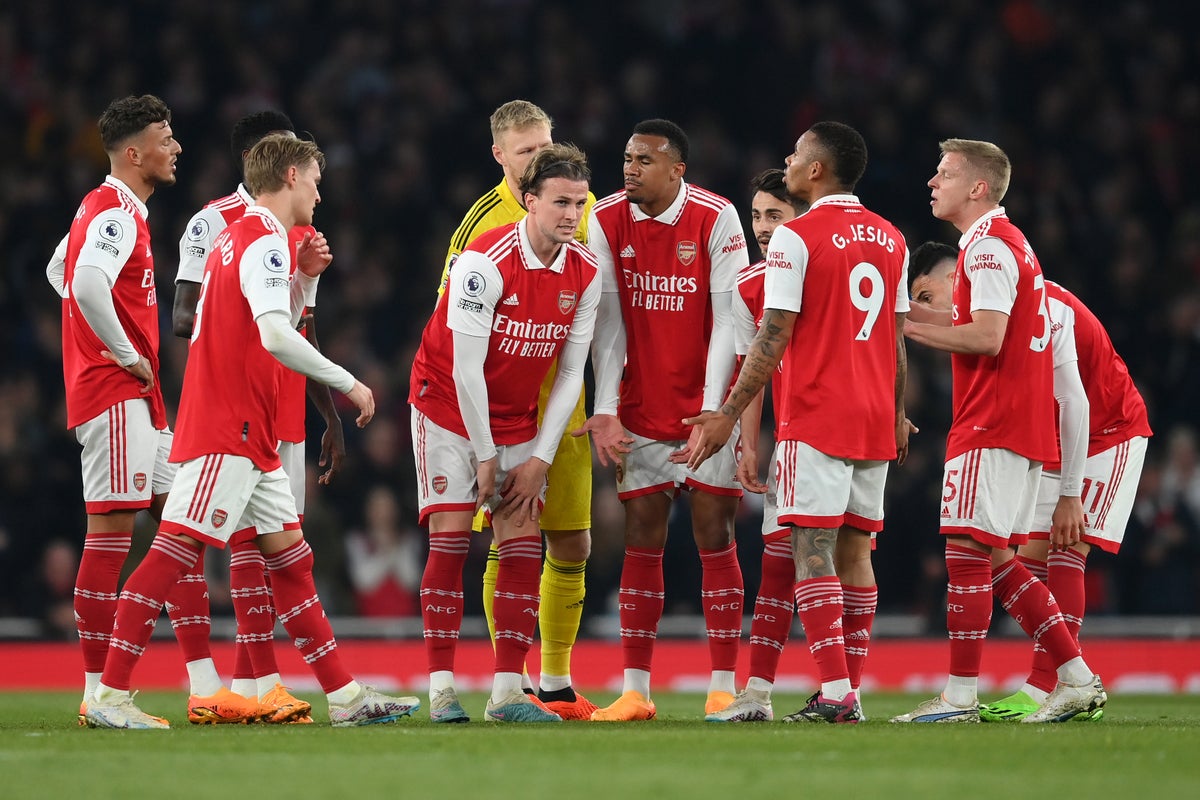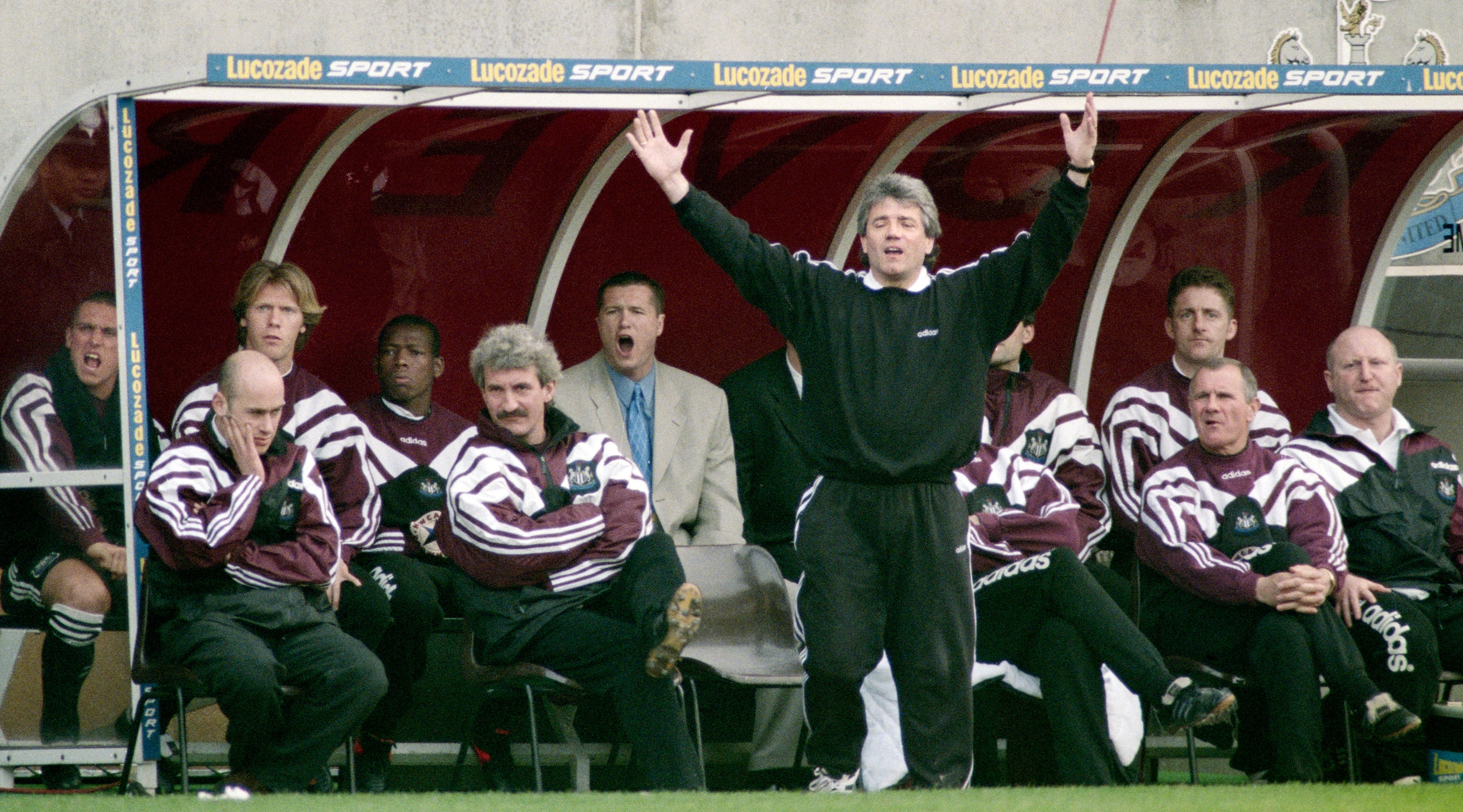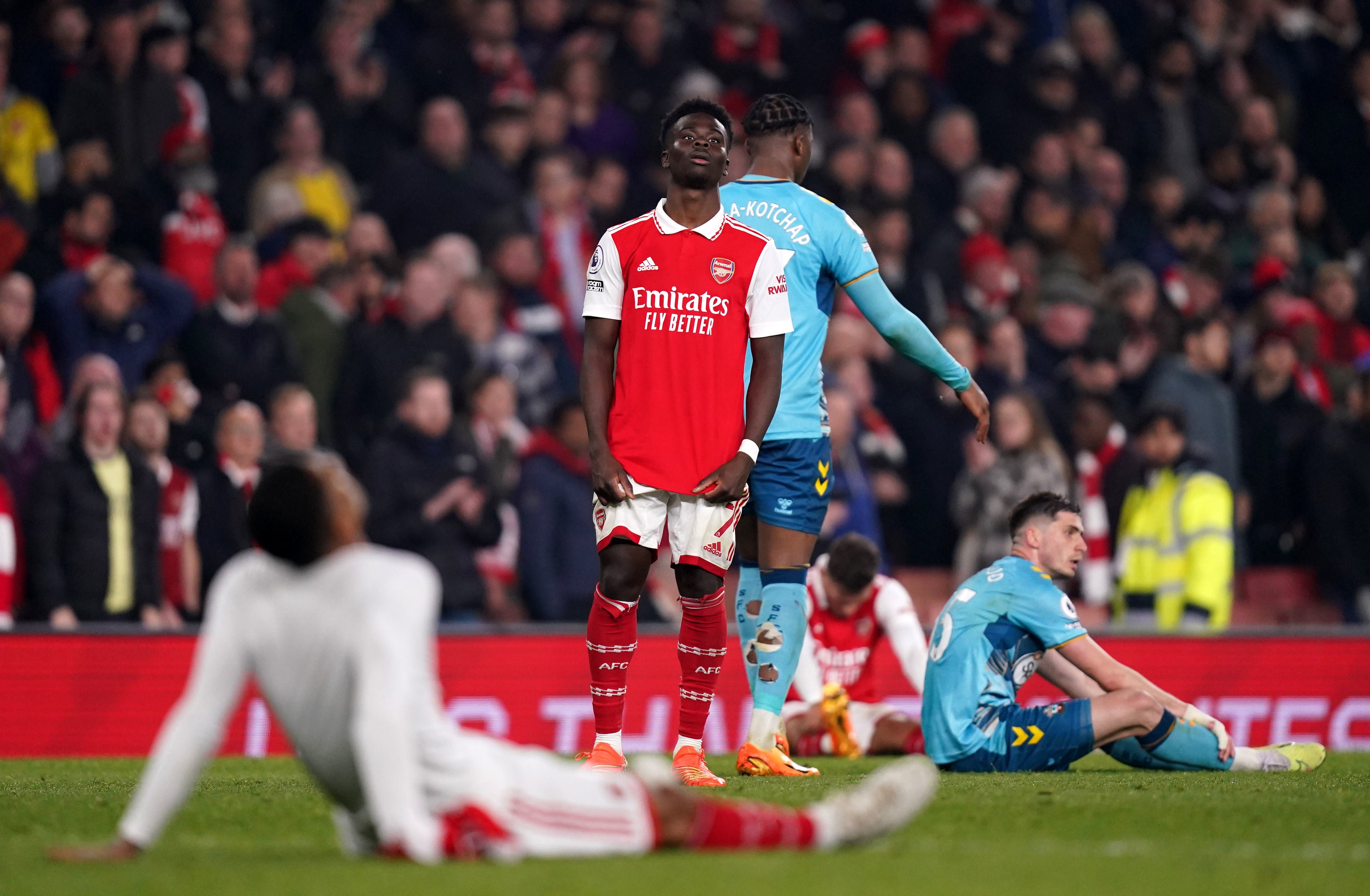
Mikel Arteta, at the least, didn’t react in the way you would expect. He was smiling. Perhaps that is because, after so much chaos and confusion for pretty much the last two weeks and three games, there is a rare clarity. That does offer some meagre comfort.
The Arsenal manager knows if his side win all of their last six games they win the title. It’s just that, to do that, they have to start with the most difficult challenge in football right now. They have to go to perhaps the best side in Europe and win. Anything else and it’s impossible not to feel it’s Manchester City’s title again.
This maybe explained Arteta’s facade after the 3-3 draw with Southampton, since he needs to maintain positivity.
Some of Arsenal’s facade is crumbling, though, and it means that a challenge of such a scale is asking even more difficult than usual. Arteta's side have to achieve one of their biggest wins directly after one of the worst runs any Premier League leaders have ever had at this stage of the season.
Consider that history.
In 30 previous Premier League campaigns, when there have been at least 12 games to go and the title has still not been mathematically secured, there have only been four leaders who have failed to win three consecutive games. They were Manchester United in 1992-93, Newcastle United (1995-96), Manchester United (1997-98) and Manchester City (2011-12).
With these, three of them involved famous collapses - but one didn’t go in the direction you’d expect.
Season |
Club |
Results |
Games to go after run |
Won the title? |
2022-23 |
Arsenal |
draw-draw-draw |
6 |
? |
2011-12 |
Man City |
draw-draw-loss |
6 |
Yes |
1997-98 |
Man Utd |
loss-draw-loss |
7 |
No |
1995-96 |
Newcastle |
loss-draw-loss |
10 |
No |
1992-93 |
Man Utd |
loss-draw-draw-draw |
7 |
Yes |
While Newcastle United in 1995-96 and Manchester United in 1997-98 lost their leads to also lose the title, City actually recovered it. That they were the last team to do this, ironically enough, is not the only possible omen for Arsenal to reach for.

The last of City’s dropped points that season actually came… away to Arsenal. The scorer that game? Mikel Arteta. The number of games to go? Six, and one of those was a direct title showdown. Arsenal face that, with so many of the same forces involved.
If all of this feels a bit nebulous, though, that is what Arteta has to look to; to appeal to something bigger; to greater powers.
This perhaps explained some of his post-game mood.
It would after all have been entirely expected if Arteta was fuming, and he did admit he was “disappointed” while making pointed reference to the“individual” errors that cost three crucial goals. His actual demeanour didn’t radiate this, though.
The Basque was smiling, while talking of his pride in and love for a young team, as he praised them for “not hiding”.
If that is surprising given the nature of the last three games, it shouldn’t be. Arteta is attempting to build his players up for what is the biggest game this team has had so far. That is all part of his management.
Whether it is effective remains to be seen. It didn’t really work after the 2-2 draw with West Ham United, but it is something he has to lean on.
So much else is beginning to drop-off with this team, not least their coherence in defence and attack. A lot of that is undeniably inexperience in a title run-in.

Others at Arsenal might point to different experiences, and some of the most memorable in the club’s history.
Back before the Premier League, to set up the sensational moment that preceded Sergio Aguero, Arsenal also went three games without a win in the 1988-89 run-in. They were two draws and a defeat and all were winnable home games.
As anyone who has watched or read Fever Pitch knows, it seemed to be decisive for the title, especially against a team as good as the Liverpool of 1987 to 1990.
It was all build-up, though. Michael Thomas improbably won the league with the last kick.
That can offer inspiration, and Arteta is known for pointing to such images on the walls of Arsenal’s base.
At the same time, there’s a reason it doesn’t have too much relevance today, and it isn’t just because it didn’t happen in the Premier League era.
It is notable that those three-game drop-offs from leaders mostly happened in the 1990s and the last was over a decade ago. That is because that 2011-12 title win marked a dividing point in history in itself, especially as it was this City project’s first. Since then, and admittedly as part of a much wider shift, the expanded finances of the game have pushed points thresholds to extremes.
Premier League champions are more exacting. They get more points. They see even one slip as fatal, let alone three. You only have to look at last season or 2018-19.
You only have to look at this City.
This is the scale of the challenge. Arsenal at least have full sight of it, if only because they have lost their bearings.







